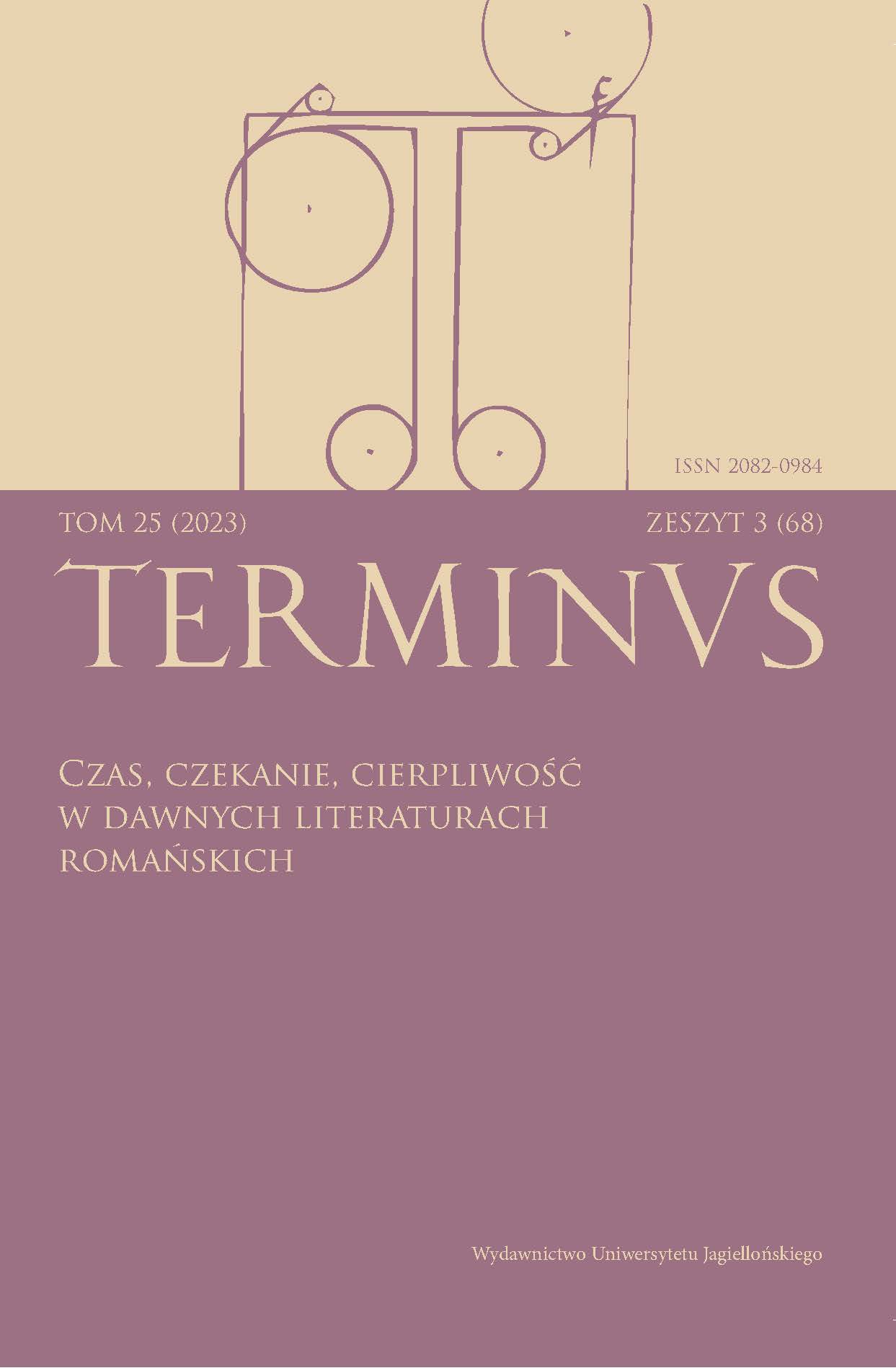„Gdy nadchodzi pora słodkich spojrzeń”. O motywie czasu w liryce miłosnej Chiara Davanzatiego
“When the time comes for exchanging sweet looks”: The Motive of Time in Chiaro Davanzati’s Love Poems
Author(s): Aleksandra UrbaniakSubject(s): Italian literature
Published by: Wydawnictwo Uniwersytetu Jagiellońskiego
Keywords: Chiaro Davanzati; time; courtly love; Sicilian-Tuscan poetry; voluptas dolendi;
Summary/Abstract: The goal of the paper is to distinguish and characterize various motifs of time in love poetry of the 13th century poet Chiaro Davanzati. The main research question addressed in the study is “How does the lexeme tempo contribute to the construction of the courtly love discourse in Davanzati’s poetry?” or, in other words, “How can this kind of analysis inform our understanding of the lover and his relationship with the lady”. This problem is approached in this study by categorizing the poems under scrutiny into three classes according to the time perspective, which can be the present, the past, and the future.The analysis is based on a number of sources, including Menichetti’s critical anthology, texts on medieval lyrical poetry in Italy, such as those by Fenzi and by Ventura, and also studies grounded in Italian linguistics (e.g. M. S. Micheli). The selection of sources was motivated by the fact that Chiaro is to some extent a forgotten poet and the recent studies dealing with his poetry focus mostly on the influence of troubadours on the Florentine bard. The motif of love and its various facets in Davanzati’s poems has been however largely underresearched, and this study is aimed to remedy this gap. The paper starts with a concise presentation of the poet’s work in the context of his epoch, and moves on to investigate the motif of time within three thematic units, i.e. the time of agony, the time lost and the time anticipated, corresponding to the present, the past and the future as mentioned above. The analysis indicates that the perception of the past by the lover depends on his relationship with the lady. The lover may consider the past “the time lost”, and yet be hoping for happiness in the future, regardless of his lady’s behaviour. A similar attitude can be traced in the poems oriented towards the future. Perhaps the most important conclusion following from the analysis is that the time frame of lyrical poetry is invariably situated in the present regardless of the time perspective adopted as the time of reflection on the experience is always the present.
Journal: TERMINUS
- Issue Year: 25/2023
- Issue No: 3 (68)
- Page Range: 309-321
- Page Count: 13
- Language: Polish

